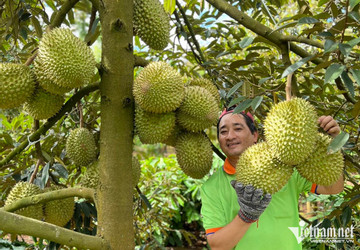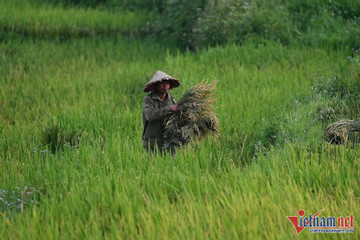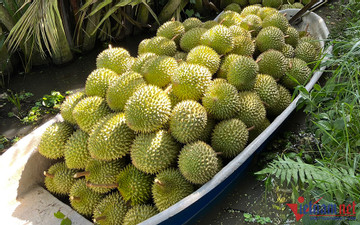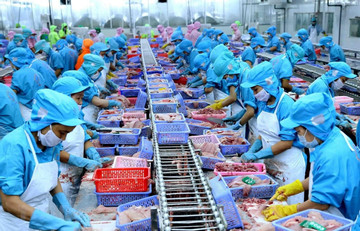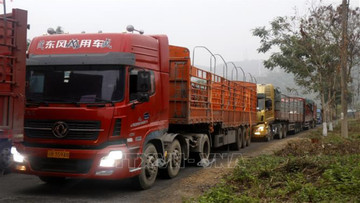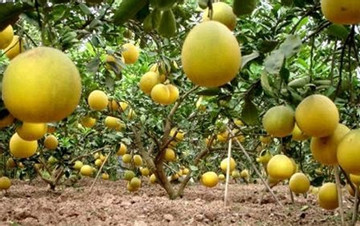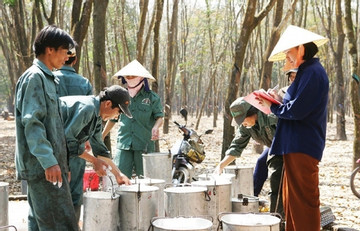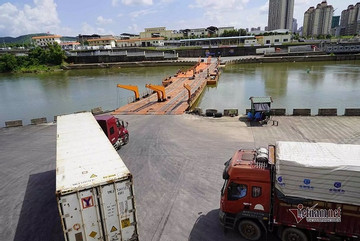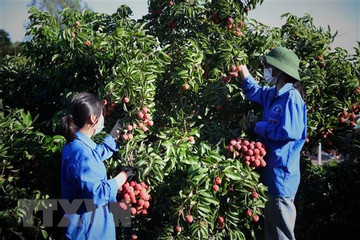- © Copyright of Vietnamnet Global.
- Tel: 024 3772 7988 Fax: (024) 37722734
- Email: [email protected]
chinese market
Update news chinese market
Vietnamese fruit exporters enter world’s largest durian market
Vietnam’s first 100 tons of durian on September 17 were shipped from Dak Lak to China, the world’s largest durian consumption market.
China imports less glutinous rice from Vietnam
The proportion of glutinous rice in total rice exports to China has fallen from 74 percent to 48 percent.
Vietnam’s steel exports to China nosedive
China is no longer a major export market for Vietnamese-made steel, as revenue from steel shipments to the northern neighbor has plummeted, the General Department of Vietnam Customs reported.
Trade fraud in fruit exports will harm entry to Chinese market
Export companies have been warned that if they commit trade fraud, farm produce to China will be blocked.
Chinese fond of branded produce, but Vietnam’s durian remains unknown
Vietnam has found a way to export durian to China. But Chinese know only Thailand’s Monthong and Malaysia’s Musang King durian.
China: "fertile" market for Vietnamese seafood
According to VASEP, consumer demand for seafood in the Chinese market is increasing but domestic seafood supply is facing a shortage, which has led to an increase in seafood imports in recent years.
Can coffee supply of Vietnam satisfy Chinese demand?
As the second-largest coffee exporter in the world, Vietnam is more than well equipped to represent a major supplier of China’s current and future demand for coffee.
Thousands of trucks stranded at Lao Cai border gate
Due to the sluggish import and export activities for the past few days, the northern province of Lao Cai has reported around 1,000 trucks got stuck at the Lao Cai International Border Gate on August 22.
Australia, US fruit imports cheap but China fruit expensive
Vietnamese are no longer turning their back on Chinese fruits but are queueing up to buy more imported fruit.
Vietnam border trade activities recover after COVID-19
Nguyen Van Hoi, Director of the Institute of Industrial Strategy and Policy Research, Ministry of Industry and Trade, spoke about the border trade activities after the pandemic was controlled.
Vietnam to export passion fruits to China from July 1
The General Administration of Customs (GAC) of China has just approved the pilot import of Vietnamese passion fruits from July 1, according to the Vietnam Sanitary and Phytosanitary Notification Authority and Enquiry Point (SPS Vietnam).
Rubber groups aim to cut China reliance
As China cuts down on its purchase of rubber from Vietnam, the latter has witnessed a sharp decline in its rubber market share in China.
Agricultural exporters advised to be cautious at Lao Cai’s border gate
Vietnamese enterprises should be cautious before transporting agricultural products to Lao Cai's Kim Thanh II border gate for export to minimise losses although Chinese authorities are piloting the re-import of these products.
Customs clearance resumes at Mong Cai border crossing after three-month hiatus
After 3 months of suspension due to the Covid-19 epidemic, the temporary pontoon bridge Km3+4 in the city of Mong Cai, Quang Ninh province has been resumed again.
Vietnam facilitates lychee purchase by Chinese traders in Bac Giang: Spokeswoman
Competent agencies and localities of Vietnam always create favourable conditions for Chinese businesses and traders to buy the fruit in Bac Giang, Foreign Ministry spokeswoman Le Thi Thu Hang said.
China resumes imports, Vietnamese farm produce prices rise
The prices of many fruits have increased sharply these days as China, the biggest consumer, has begun increasing imports.
Chinese dealers flock to purchase Vietnamese lychees
More than 100 Chinese dealers have been permitted to enter and purchase lychees in Luc Ngan district of Bac Giang province which is noted for lychee growing in Vietnam.
Imports flood fruit market, domestic fruit now dirt-cheap
Fruit exports have sharply decreased in number, while imports have soared. Farmers are now finding it difficult to sell products.
VN firms struggle as China lockdowns disrupt supply chains
Vietnamese businesses are finding it difficult to cope with supply chain breakages as a result of China enforcing strict COVID-19 lockdown policies to curb recent outbreaks.
Shortage of material imports from China slows order growth
The rise in new orders has been slower as some customers have been deterred by sharp price rises, in addition to difficulties in buying materials from China which is imposing stringent Covid-19 restrictions.
